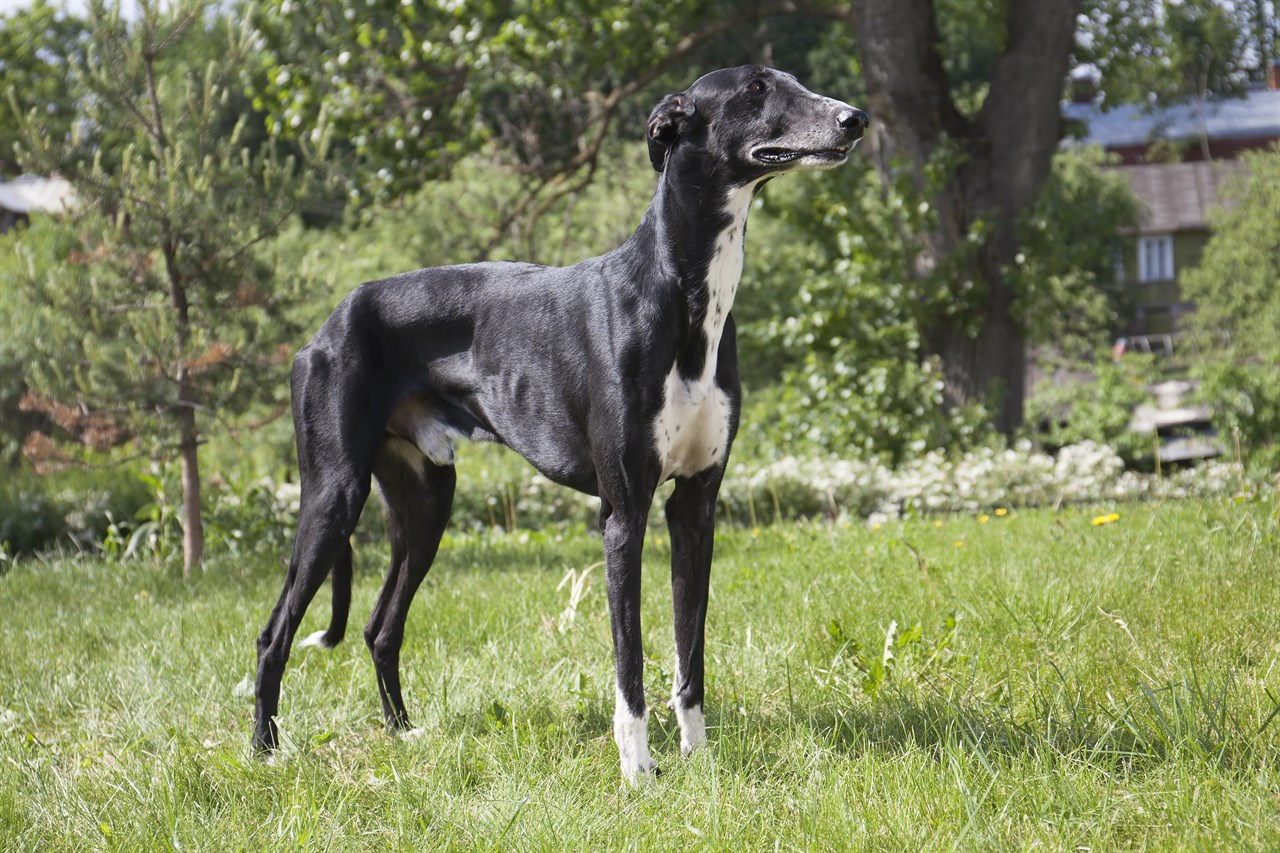Expected lifespan of a Greyhound

The expected lifespan of a Greyhound typically falls within the range of 10 to 14 years. Like most dog breeds, the lifespan of a Greyhound can be influenced by several factors, including genetics, diet, exercise, and overall healthcare.
Genetics
Genetic factors play a significant role in determining a Greyhound's lifespan. Responsible breeders strive to produce healthy dogs by breeding from lines with minimal hereditary health issues. Adopting from a reputable breeder or rescue organisation can increase the chances of having a longer-lived Greyhound.
Diet and Nutrition
Providing a balanced and appropriate diet is crucial for a Greyhound's overall health and longevity. Feeding high-quality dog food and maintaining a healthy weight can contribute to a longer life.
Exercise
Greyhounds are an active breed and benefit from regular exercise to maintain their physical and mental well-being. Engaging in daily walks and playtime helps keep them fit and healthy.
Healthcare
Regular veterinary check-ups and preventive care are essential for catching and addressing health issues early. Vaccinations, dental care, and parasite control are important aspects of maintaining their health.
Spaying and Neutering
Spaying or neutering your Greyhound can have health benefits and may contribute to a longer life by reducing the risk of certain reproductive-related diseases and unwanted behaviours.
Environmental Factors
Providing a safe and comfortable living environment is vital for your Greyhound's well-being. Protect them from extreme weather conditions, provide clean water, and keep their living space free from hazards.
Breed-Specific Health Concerns
Like all breeds, Greyhounds can be prone to certain breed-specific health issues, such as bloat (gastric torsion), hip dysplasia, heart disease, and osteosarcoma (a type of bone cancer). Regular veterinary care can help monitor and manage these conditions.
Lifestyle and Stress
Minimising stress and ensuring a happy, enriching environment can positively impact your Greyhound's lifespan. Dogs that are well-socialised, mentally stimulated, and content tend to live longer and healthier lives.
While Greyhounds, on average, have a lifespan of 10 to 14 years, it's important to remember that individual dogs may have shorter or longer lifespans. Each dog is unique, and their health and longevity depend on various factors. By providing proper care, nutrition, and attention to their well-being, you can help ensure that your Greyhound enjoys a long and fulfilling life as a cherished member of your family. Regular veterinary check-ups and early intervention for any health issues are essential components of maximising their lifespan.
Greyhound puppies for sale
- Find Greyhound puppies for sale in ACT
- Find Greyhound puppies for sale in NSW
- Find Greyhound puppies for sale in NT
- Find Greyhound puppies for sale in QLD
- Find Greyhound puppies for sale in SA
- Find Greyhound puppies for sale in TAS
- Find Greyhound puppies for sale in VIC
- Find Greyhound puppies for sale in WA